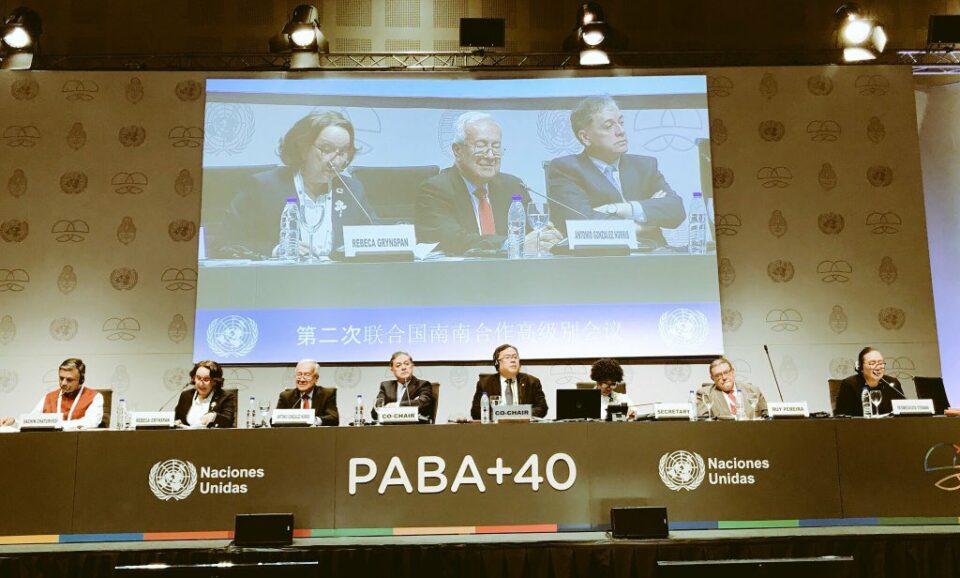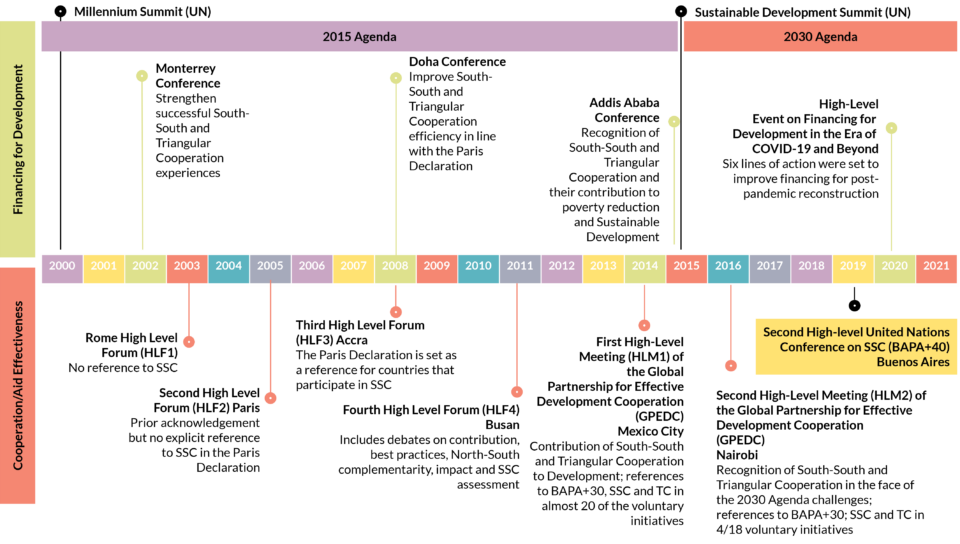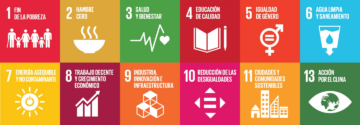A Day to recognize the contribution of South-South Cooperation to development

On September 12th, the international community celebrates the United Nations Day for South-South Cooperation, a special moment to recognize its role as an engine for sustainable development.
In 2003, in its resolution 58/220, the United Nations General Assembly (UNGA) decided to annually commemorate the United Nations Day for South-South Cooperation (SSC). Starting in 2004, the first anniversaries were celebrated on December 19th. In 2011, however, the date was changed to September 12th, coinciding with the commemoration of one of SSC’s founding milestones: the Buenos Aires Plan of Action (BAPA) on Technical Cooperation among Developing Countries (TCDC), adopted by consensus by 138 States.
In this sense, the promotion of the annual celebration of this United Nations Day for South-South Cooperation was concurrent with the progressive recognition of South-South and Triangular Cooperation and their contribution to development. The context of the last two decades has been essential in this process, coinciding with the promotion of the Global Development Agendas that have been guiding and transforming the international development cooperation system and the way in which it is articulated.
Indeed, in September 2000, 189 United Nations member states gathered at its headquarters in New York to sign the Millennium Declaration, an unprecedented document that sealed the international community’s commitment to develop a global partnership that would work to make progress on poverty reduction by 2015. Once this time limit was met, the United Nations carried out an assessment of the Millennium Agenda that confirmed how relevant this commitment was (United Nations, 2015; p.3). The remarkable achievements, however, should not hide persisting challenges. Therefore, the pledge was re-launched on September 25th, 2015, when 193 world leaders endorsed the 2030 Agenda for Sustainable Development, based on new formulas.
The transition between the two Agendas was not simple and was not exempt from tensions: on the one hand, with respect to the narrative of development itself (which began to be understood in a more multidimensional way rather than mainly focused on poverty reduction); and, on the other hand, in terms of an international cooperation system that was somehow dated and required some changes. One of these changes was the acknowledgement of South-South and Triangular Cooperation as instruments for the effective implementation of Sustainable Development.
The recognition of the contribution South-South and Triangular Cooperation could make to Sustainable Development was reaffirmed by the international community itself during the Second High-level United Nations Conference on SSC which, in March 2019 in Argentina, commemorated the 40th anniversary of 1978’s Buenos Aires Plan of Action.
Although BAPA+40 was certainly a landmark in terms of the acknowledgement of South-South and Triangular Cooperation, it was the result of a process that had already been underway over the years. This is revealed when reviewing the way in which both modalities have been addressed in the successive international events that are related to the achievement of Development Agendas, from 2000 until today.
South-South and Triangular Cooperation in the framework of the Summits, Conferences and Fora on Cooperation and Development (2000-2021)*

The figure portrays, through a timeline, the way in which these modalities have been addressed over the years. As it shows, it is possible to conclude that, under the Financing for Development Agenda, references to South-South and Triangular Cooperation evolve from the strengthening of experiences to a broader vision, recognizing the role they can play in the achievement of the SDGs. Likewise, under the Agenda of Aid Effectiveness, there is a shift from the lack of mention to the recognition of their greater effectiveness and their contribution to development. In this framework, both modalities play a leading role in the voluntary initiatives that are promoted to make progress on these meetings’ proposals.
The pandemic has caused a certain disruption. In this sense, the only Summit on Financing for Development that has taken place in the framework of the 2030 Agenda was precisely held in 2020, and its focus has been the promotion of financing to respond to the serious crisis caused by COVID-19, in order to foster a recovery that seeks to preserve progress already made in terms of Sustainable Development.
This task is one of the most challenging and complex ones in recent years. The proposed lines of action do not foresee a specific role for South-South and Triangular Cooperation. However, analyses carried out by SEGIB to determine the potential of both modalities to face COVID-19’s impact, suggest the added value of accumulated experience and the enormous potential they have to contribute to a response that also aims to continue advancing towards the achievement of sustainable development. This September 12th is certainly a good Day to recognize South-South and Triangular Cooperation and claim for the role they should play as an engine for development.
September 2021
* Source: SEGIB based on Rivero and Xalma (2019). “Ibero-America and South-South Cooperation at the crossroads of the international development agenda”. Working Papers nº 16 (2nd period), Fundación Carolina, Madrid.

